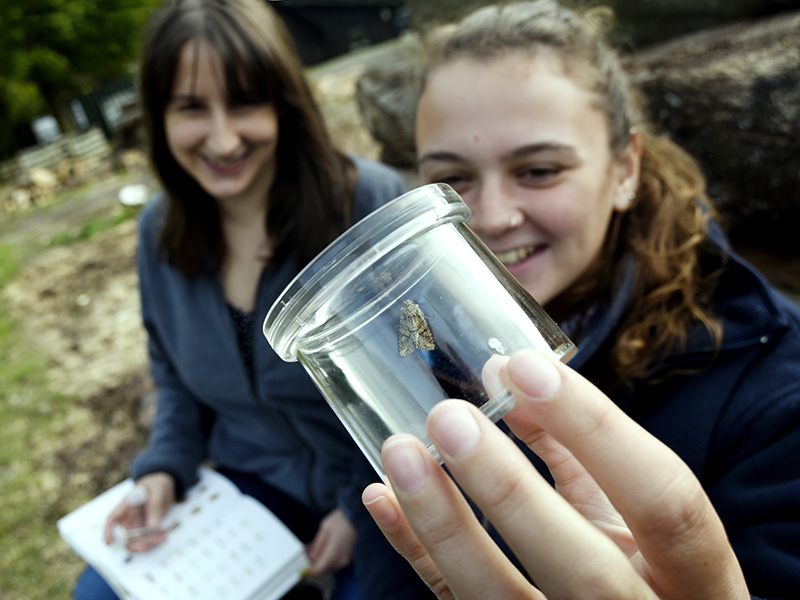Wytham Woods is recognised as a world-class centre for research. It has now launched a fundraising appeal to enable it to expand its educational activities and to encourage and extend public participation in science.
As one of the most researched areas of woodland in the world, Wytham is a unique resource for the wider community to explore and enjoy. The team at Wytham is keen for local people to become actively involved with the science in the woodland.

Forest schools introduce children of all ages to the woods, where they learn about nature by building dens, exploring the environment, cooking over small fires and hunting for minibeasts. Led by the interests of the children, presently forest schools at Wytham offer the opportunity for children to develop their communication and social skills and to gain personal confidence and self-esteem. Primary schools in Oxfordshire regularly participate in sessions using this specialised learning approach.
The designated areas of woodland at Wytham that are used as outdoor classrooms for nature studies and team building are the perfect environment for children to experience outdoor and woodland education. As they learn about outdoor skills, science and technology and history, the children simultaneously gain a greater understanding and appreciation of the natural world.
In partnership with Earthwatch UK, Wytham Woods delivers expert ecological training to teachers and local citizens, as well as to a variety of multinational companies. Such courses are extremely well received with one participating teacher saying: ‘Without a doubt the best course I have ever done. I learned an amazing wealth of techniques and knowhow about how and what to teach my pupils.’
The opportunities for members of the wider local population to benefit from Wytham Woods’ range of activities are plentiful too: the Citizen Science project, also known as crowd science or volunteer monitoring, gives non-scientists a meaningful way to contribute to scientific research. Projects involving ecological monitoring such as bee, butterfly, ladybird and tree phenology (the study of how the biological world times natural events) are currently under development, and the recently introduced bumblebee walks are proving popular. With the recent arrival of Ash Dieback in the woods, participants can also record their findings on a specially created app for Ash Dieback in Wytham Woods. Further site-specific apps are in development, such as an app for recording bees, complete with a guide to species known to be present at different times throughout the year.
Nigel Fisher, Conservator of Wytham Woods, says: ‘We often forget that humans are a key part of the woodland ecosystem. To have people in the woods undertaking ecological and educational activities is a vital part of the woodland’s life, and has the important benefit of reconnecting people to nature.’
Thanks to the generosity of Wytham supporters in the past, £50,000 was raised for veteran trees, ponds and black hairstreak butterflies. Consequently, the biodiversity value of the woods has improved and Wytham Woods has maintained its SSSI (Site of Special Scientific Interest) status.